Tanzania Serengeti Great Migration Photo Safari
- June 5th, 2027 - June 13th, 2027
- Spaces Left: 3 (Maximum 5 Photographers)
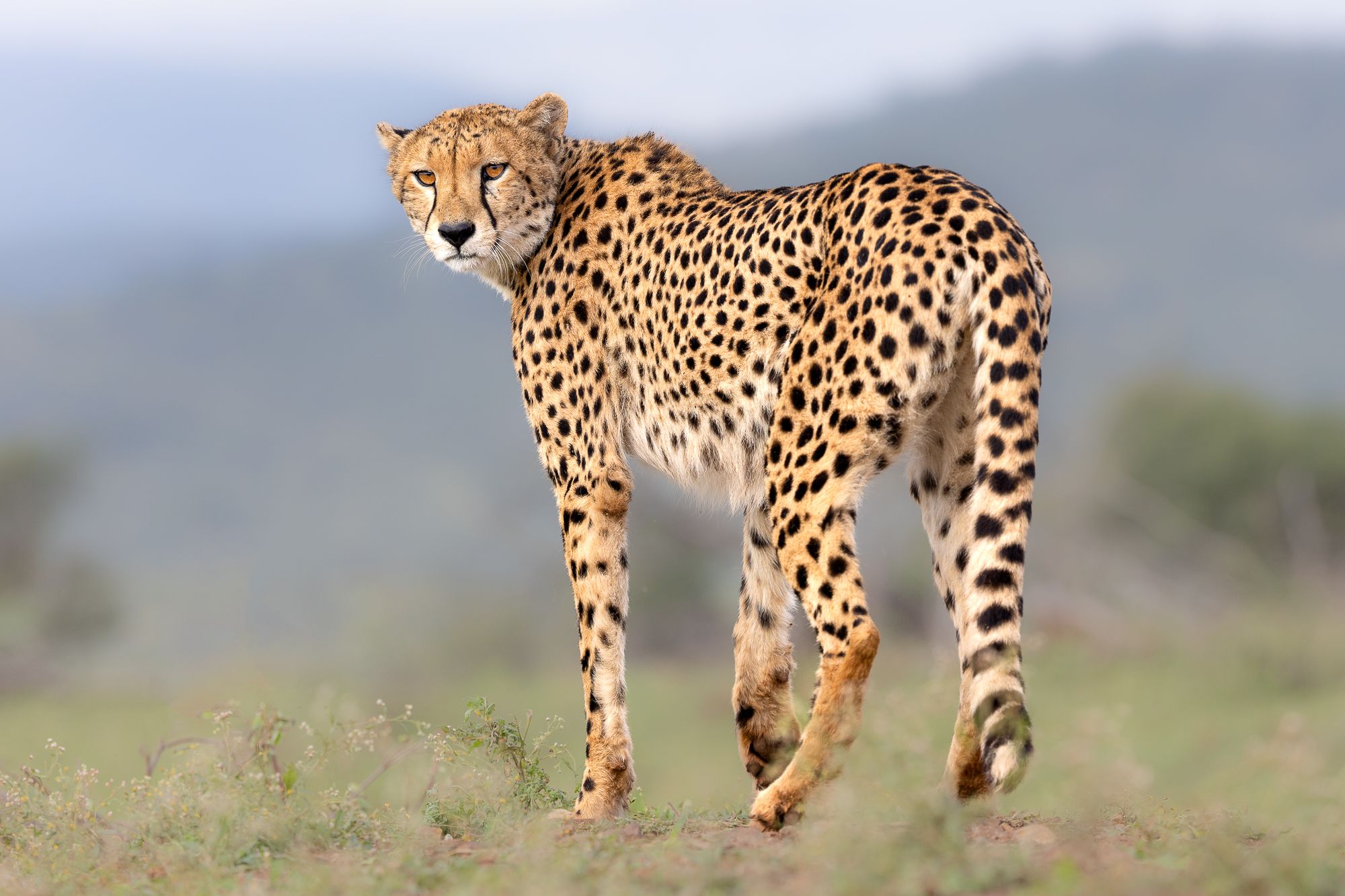
WORKSHOP AT A GLANCE
This bespoke, custom-tailored workshop in the Serengeti, Tanzania, is for keen and passionate wildlife photographers who want to experience and photograph the Great Migration, capturing powerful photographs of Africa's incredible wildlife. We have a small group size and offer personal, one-on-one tuition throughout the workshop.
- Dates: 05th June 2027 until 13th June 2027 (Duration 8 Nights / 9 Days)
- Why Travel with Us: Wild Nature Photo Travels Point of Difference
- Investment: $12,750 USD ($1,250 USD Single Supplement). Wild Nature Photo Travel Team members pay no single supplement.
- Deposit: A deposit of $4,000 USD is required to secure a place, with the balance due 120 days before the workshop commencement.
- Participants: Maximum 5 Photographers plus a leader
- Start and Finish: Kilimanjaro International Airport, Tanzania
- Trip Leaders: Joshua Holko, Master Photog II
- Fitness Level: Easy
- Temperature: Warm to Hot
- Experience Level: Beginner to Professional
ABOUT THIS WORKSHOP
In June 2027, I am offering a once-in-a-lifetime great migration experience to the Serengeti in Tanzania, Africa. This workshop will take place in an exclusive private high-end tented camp for seven nights / eight days. An additional night is included at the beginning on arrival for a total of eight nights / nine days.
This exclusive workshop, limited to just 5 participants, plus a leader, is dedicated to the photography of African wildlife in Tanzania. This small group size ensures lots of personal one-on-one time and extensive photographic tuition on how to get the best wildlife photographs.
Accommodation: There are eight exquisite en-suite tented rooms. All tents can be configured as a twin or king, with the option of adding an extra bed. Each guest has access to the fully contained main camp tent, which features its own lounge and dining facility.
Wildlife: Africa's Big Five can be seen and photographed in this region. In addition, there are many other mammals, reptiles and birds, including eagles, owls and more. Lions, leopards, cheetahs, and Cerval are regularly seen and photographed. You can also expect many encounters with elephants, giraffes, rhinos, Cape Buffalo, zebras, and other wildlife on the plains.
A Typical Day on Safari: A usual day on safari typically begins with waking up to the sounds of the night and early morning, accompanied by a cup of tea or coffee. Slowly get ready for your morning game drive. Gather in the main dining tent for more coffee, tea, granola, fruit, or whatever you fancy. Don’t worry about food, because you will be well taken care of for your dining needs. All dining desires and avoidances are handled professionally and without a skip.
After a quick bite, you will board the safari vehicle and depart the camp, possibly around sunrise or shortly thereafter. You will check up on the sounds of the night, searching for signs of nighttime activity. We often hear lion roars early in the morning, and it is great to head out quickly to see what they are up to, as this tends to be their most active time of the day.
After a relaxing game drive, you might come back to camp for a proper breakfast, or you may take a bush breakfast with you. The staff loves to mix things up, so anything can and will be done for you to exceed your expectations. Sometimes breakfast is at 9 am, sometimes it’s brunch at 11 am, and sometimes you have a proper lunch served at 1 pm back at camp.
One thing is a truism while on safari: you will never ever want for more dining opportunities. After some time off, you will return to camp and meet up for high tea in the mid-afternoon, usually around 3:30-4:00, before heading back out on your afternoon game drive.
You will continue your game drive until the sun wanes, perhaps finding a beautiful viewpoint for sunset and where you can stop to enjoy a glass of wine, soda, sparkling wine or beer before heading back to camp. When the time is right, you will make your way back to camp, freshen up for dinner and congregate at the bar or what we call the bush television, also known as the campfire.
When you are ready, you will sit for an excellent meal prepared by the chef and team. Return to your quarters after dinner and listen to the sound of the night as you drift off to sleep. A fantastic day out on safari, as intended.
Dietary Requirements: If you have special dietary requirements, we will do our best to accommodate you. Please ensure you let us know when you make your booking.
Travel: We will travel by private transportation from our starting location in Tanzania to our camp. Typically, there is no significant walking during the workshop.
Equipment: Telephoto lenses from 300 mm to 500 mm are recommended. Zoom lenses generally provide more flexibility for fast-moving wildlife and bird life. A wide-angle lens is also recommended for close-up encounters.
If you are excited about travelling to Tanzania with a small group of dedicated photographers to photograph some of Africa's iconic wildlife, then now is the time to secure your place. Places are very limited, and once they are spoken for, that’s it.
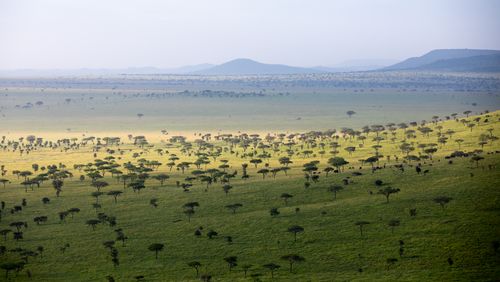
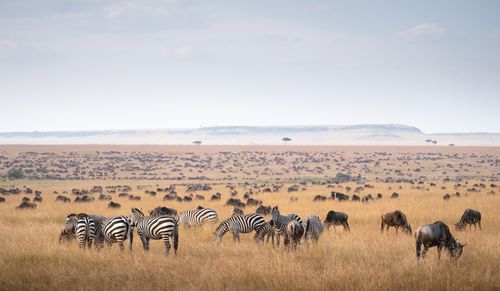
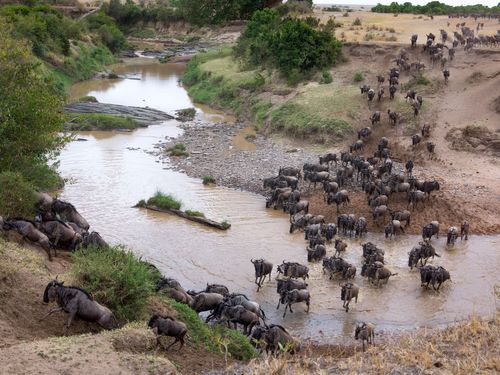
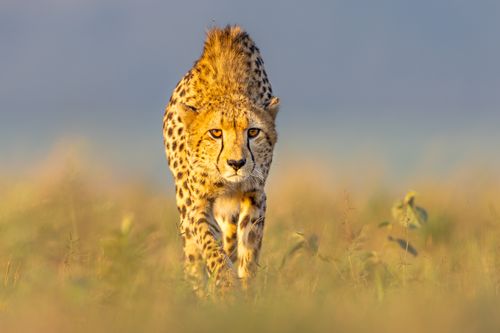
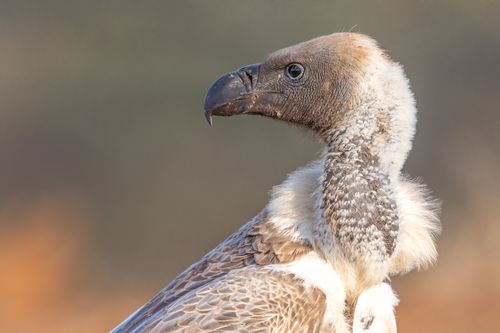
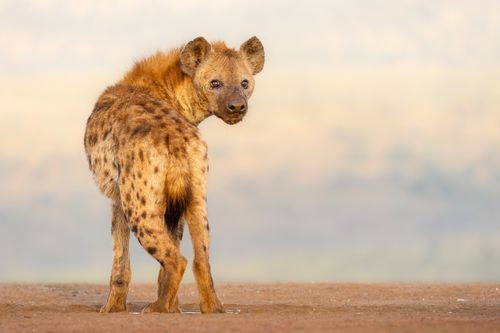
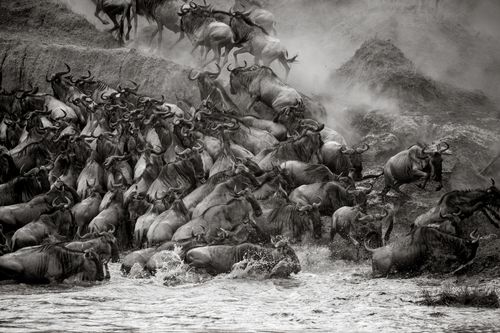
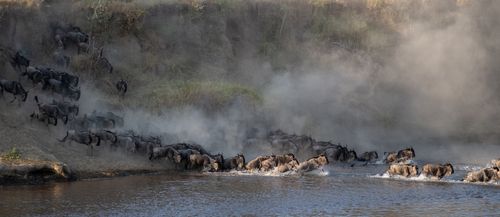
WORKSHOP ITINERARY
June 5th: We officially begin our workshop with your arrival at Kilimanjaro International Airport, Tanzania, on June 5th. Upon arrival, you will be met in person and transferred to your hotel for the night, The African Tulip. Here you will enjoy a relaxing first dinner and a gentle introduction to our safari.
June 6th - June 13th: We will check out in the morning of the 6th of June and take a morning internal flight to the Northern Serengeti, where you will spend the next week on safari. During our stay, we spend seven nights at the Njozi Camp.
On the 13th of June we will fly back to Kilimanjaro International Airport in the late morning (time TBA), in time for you to check in for your international flight. If you are flying later in the afternoon or evening, we recommend arranging day rooms for you.
Arusha: Arusha is located at the foothills of Mount Meru on the eastern side of the Great Rift Valley. This is the gateway to the northern safari circuit, with easy access to the Serengeti, Ngorongoro, Lake Manyara, Tarangire, Mount Kilimanjaro, and Mount Meru. Its elevation of 1,400 m (4,600 ft) keeps temperatures relatively cool despite proximity to the equator; temperatures generally range between 10 and 30 C (50 and 86F), with little humidity due to the altitude.
Arusha is serviced by two airports, Kilimanjaro International Airport (JRO) on the eastern side, and Arusha Airport, which primarily services domestic travel. There is some good shopping available, including the impressive Cultural Heritage, with curio shops, a jewellery boutique, a Tanzanite and precious stone counter, a bargain centre, and an art gallery.
The African Tulip: The African Tulip hotel is an elegant, charming boutique hotel located in the leafy suburb of Arusha. Tanzania’s rich cultural and wilderness resources helped inspire the décor at the African Tulip, from intricately carved furniture to warm colours throughout the hotel, which invoke that feeling of being home away from home.
Northern Serengeti: This photographer’s paradise is one of the best places in Africa to view the big cats as well as a fantastic array of plains game. The northern Serengeti boasts the classic, expansive plains of the African savannah, offering sprawling views and consistently delivering excellent wildlife sightings. It is one of the best places in East Africa for leopards, and the kopje strewn hillsides that are home to these elusive creatures are in themselves stunningly beautiful. A few days here can be very action packed and there’s even chances to see black rhinos in some areas.
The Serengeti is perhaps the most famous African wilderness area, its name synonymous with the notion of safari for nearly a hundred years. This UNESCO World Heritage site covers 14,750 km2 (5,700 mi2) of premier game viewing in Acacia woodlands, open grasslands, and undulating savannahs interspersed with seasonal rivers. The park on the northern side borders the Maasai Mara National Reserve in Kenya and, together with several other smaller reserves and conservation areas, forms the larger Mara-Serengeti ecosystem.
The Great Wildebeest Migration:
The months of July to October see over two million animals traverse these plains as part of the Great Wildebeest Migration in their never-ending search for water and nutrient-dense grasses. This is one of the Seven Wonders of the Natural World and what many call the “World Cup of Wildlife.” The energy of the bush is palpable as it literally hums with activity; the sheer numbers of animals boggle the mind, and it is all part of being in this place during one of the most exhilarating times of the year.
If you are lucky, you may witness a river crossing, when masses of wildebeest and zebra cross the nearby Mara River, taking their chances with the resident crocodiles who lie in wait. The other predators are all present as well, and days here can be very exciting.
Njozi Camp: Njozi Camp follows the annual wildebeest migration, offering guests a front-row seat to the procession of more than two million wildebeest as they wander across the vast plains of the Serengeti.
Operating as a seasonal camp, the classic design of the camp has been adapted to complement the environment. The natural linen and earthy colours reflect the tranquility and peace of the Serengeti, allowing you to feel connected to your surrounds as you follow the ever-moving migration.
Njozi Camp is an oasis for those who seek a comfortable, classic camp experience with a true focus on game viewing. The camp not only offers guests a glimpse of big cat research, it also supports the development of Tanzanian wildlife biologists.
The philosophy is to provide comfort for guests while the staff works diligently behind the scenes to offer complete flexibility with meal times and service. This includes packing meals to go to the bush. This way, your guide can deliver a superior game-viewing experience that surpasses all expectations.
Weather in Tanzania: This region of Africa is warm to hot this time of year, with most days hovering around +/-25ºC. Mornings and evenings are cool to cold, and a warm jacket is recommended for pre-dawn Safaris. Rain is possible, and a rain jacket is recommended, just in case.
Flights to Tanzania: Flights to Tanzania can be booked directly through a variety of carriers via Johannesburg.
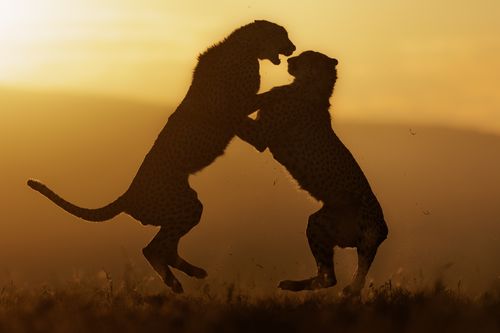
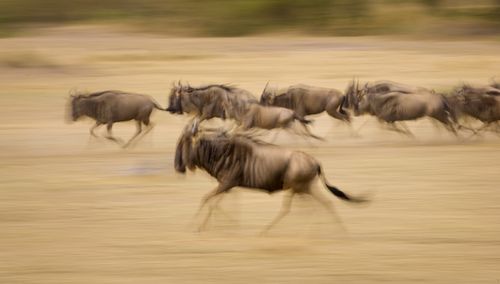
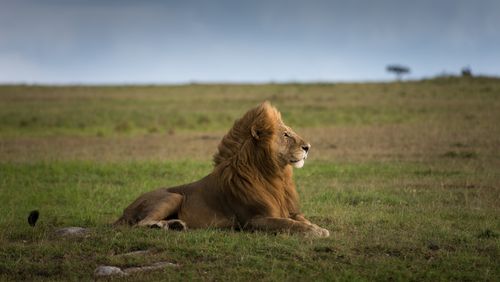
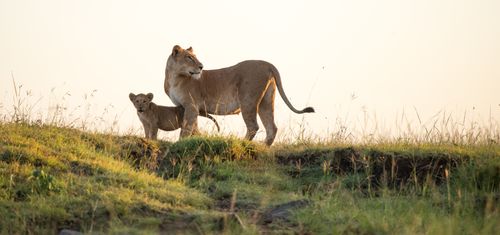
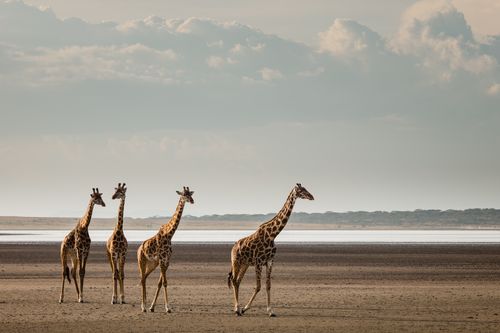
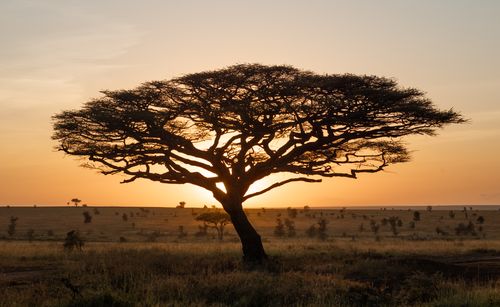
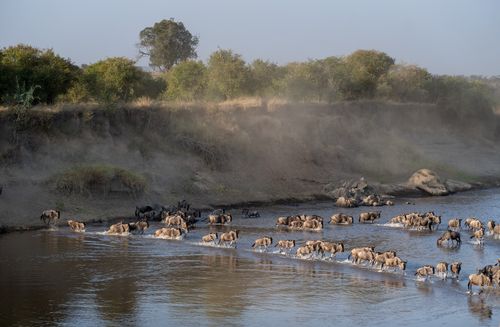

INCLUSIONS AND EXCLUSIONS
Inclusions
- Meet and Greet and Transportation: Meet and greet at Kilimanjaro International Airport, followed by a private transfer to your hotel. Includes return airport transfers on arrival at Kilimanjaro International Airport, Africa.
- Accommodation: 9 Nights accommodation, including activities and all meals. Private luxury suite (sharing) or elegant single room.
- Game Drives: Game Drives to track down some of Africa's charismatic animal species. (You will not be sharing vehicles with other groups)
- Food and Beverages: Includes breakfast, Lunch, and Dinner (excluding alcohol) for the duration of the workshop
- Tuition: Expert one-on-one Photographic tuition and guiding services
Park Fees: Park and conservation fees
Flights: All internal flights as required between lodges and camps.
Exclusions
- Transportation: Any travel required to arrive at the workshop starting location, Kilimanjaro International Airport
- Duties and Taxes: Any taxes, levies, insurances, Immigration, duty, and visa fees where applicable.
- Travel and Evacuation Insurance: We partner with and recommend Global Rescue for all travel and medical insurance.
- Personal Items: Any personal items, including alcoholic beverages, and souvenirs. Tipping for local guides is recommended. Our recommendation is $30 USD per/day per person.
Optional Activities: Not specifically listed in the detailed itinerary, like a hot air balloon safari
Additional Weight Allowance: Additional weight allowance on internal flights (15kg is standard and we can purchase more weight allowance, once we know how much over the standard the group is. We typically buy another empty seat on the flights, which comes to around $500-600 and that allows for about 100kg of additional weight allowance for the group.
TERMS AND CONDITIONS
A deposit of $4,000 USD must be paid at the time of booking to secure your place, with the balance due 120 DAYS before the workshop commencement date. Deposit Methods Accepted: Credit card Visa/Master (+3%) or Direct Deposit / Wire Transfer.
Refunds and Cancellations: Our standard workshop policy requires an initial non-refundable deposit for the reservation of your space and your payment balance in full 120 days before the commencement of the workshop date unless otherwise noted. If we do not receive the balance on or before the due date, and we are unable to get in contact with you via the contact details you have provided, we will try to fill your spot off the waiting list. At our discretion, we may apply your deposit to be used for another workshop within one year. Please note that price increases may apply in this instance.
If the workshop is cancelled for any reason, your deposit will be refunded in full. Wild Nature Photo Travel Pty Ltd., trading as Joshua Holko Photography and Joshua Holko, is not responsible for any financial commitments that registered attendees have with third parties such as airlines or other travel services.
READ FULL TERMS AND CONDITIONS
Travel Insurance: You must purchase travel and evacuation insurance in the event of illness or any other emergency that delays or otherwise prevents you from travelling on the trip. Wild Nature Photo Travel partners with and recommends Global Rescue for Evacuation and Medical insurance.
REGISTER FOR THIS WORKSHOP
If you are excited about photographing the Serengeti's phenomenal and iconic wildlife from private luxury ground-level hides with a small group of like-minded, passionate photographers, now is the time to register your interest. Places are extremely limited, and once spoken for, that's it.